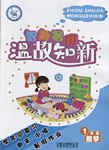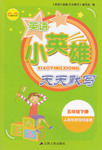题目内容
The Intel Science Talent Search is the top science competition for high school students in the US. The 40 finalists were honored in Washington last week. They met with scientists and politicians. President Obama welcomed them to the White House.
These 40 students were selected from almost 2,000 contestants nationwide. They had to present original research to be judged by professional scientists. The students showed their research projects on large posters. The winners were announced on March 15th, 2011.
Wendy Hawkins is executive director of the Intel Foundation, who says the 40 finalists represented excellence across many areas of science.
Selena Li is from Fair Oaks, California. She wanted to find a more effective treatment for liver cancer. She began her research four years ago. A scientist at the University of California, Davis, taught her how to design and do experimental work in the laboratory. Ms. Li placed 5th in the Intel Science Talent Search and was awarded 30,000 dollars.
Scott Boisvert lives near Phoenix, Arizona. He began using a laboratory at the University of Arizona at the age of 14. Over four years, he completed a project studying a fungus(真菌) linked to the decrease in amphibians(两栖动物)around the world. He was trying to find out if different chemicals and substances in the water could kill the fungus. He collected and tested water samples across Arizona. He says, “My results were able to identify a list of chemicals that were significant in the growth and in the movement of the fungus.” He placed10th in the Intel competition and was awarded 20,000 dollars.
Evan O’Dorney of Danville, California, won the top award of 100,000 dollars in this year’s Intel Science Talent Search. For his mathematical project, he compared two ways to estimate the square root of an integer (整数) , a number with no fractional parts.
Wendy Hawkins at the Intel Foundation says these young people represent the next generation of scientists who will help shape America’s future.
【小题1】According to the passage, if you want to win the Intel Science Talent Search, you must________.
| A.have high academic achievement |
| B.be excellent in all areas of science |
| C.offer original research |
| D.do many experiments in a university lab |
| A.Wendy Hawkins. | B.Selena Li. |
| C.Scott Boisvert. | D.Evan O’Dorney |
| A.Scott Boisvert found a new fungus linked to the decease in amphibians. |
| B.The 1st, 5th and 10th students in the competition come from California. |
| C.Scott Boisvert is the youngest winner among the 40 students. |
| D.The Intel Science Talent Search is an intense competition. |
| A.critical | B.negative | C.positive | D.mixed |
【小题1】C
【小题2】D
【小题3】D
【小题4】C
解析

 智趣暑假温故知新系列答案
智趣暑假温故知新系列答案 英语小英雄天天默写系列答案
英语小英雄天天默写系列答案 暑假作业安徽少年儿童出版社系列答案
暑假作业安徽少年儿童出版社系列答案Children at a school in Italy have today begun an experiment to replace all their books with personal computers. The pupils involved will each be given a special laptop that contains their entire courses.
Until today, the Don Milani di Rivoli elementary school in central Turin was like any other. Children turned up, got out their books and pens and began the process of learning. But now, in what's being described as a unique experiment, 60 fifth-grade pupils and a number of third-graders, will start using computers only.
The mini-laptops, which run Windows software, all have a full curriculum programmed into them. The pupils will use the computers to do all their reading and writing. Security systems within the laptops mean the children's access to the Internet is strictly controlled. The machines weigh less than a kilogram, can be dropped from a height of 1.5 metres and are waterproof.
Instead of spending 700 dollars a year on books, the laptops, built by the Italian company Olidata, cost less than 400 dollars. One of the teachers involved in the scheme says that, for the first time, schools will be able to verify in a scientific way how a computer alone can improve the learning process. The experiment, which has the backing of parents, is due to last a year.
In other countries, such a programme is also being carried out. Venezuela is ordering one million low cost laptops for its school children. The machines will be based on the Intel Classmate laptop that has been designed for school children. Many see the deal as a blow for the One Laptop Per Child organization that has also been introducing its child- friendly machine to developing nations.
【小题1】 Which of the following is TRUE about the mini-laptop?
| A.It is heavy for pupils to carry. | B.It can't be damaged by water. |
| C.It is one and a half meters high. | D.It is easily broken or damaged. |
| A.learn their lessons as an aid |
| B.have a course named computer studies |
| C.surf the Internet mainly to find information |
| D.do what they used to do with books and pens |
| A.Less than 400 dollars. | B.More than 400 dollars. |
| C.More than 300 dollars. | D.Less than 300 dollars. |
| A.It has been carried out for over one year. |
| B.It has already turned out to be a success. |
| C.The pupils' parents are against it in fact. |
| D.The pupils' parents are supportive to it. |